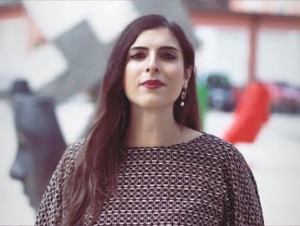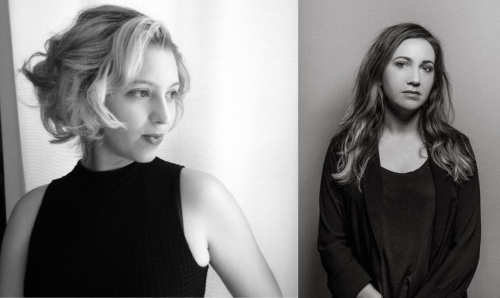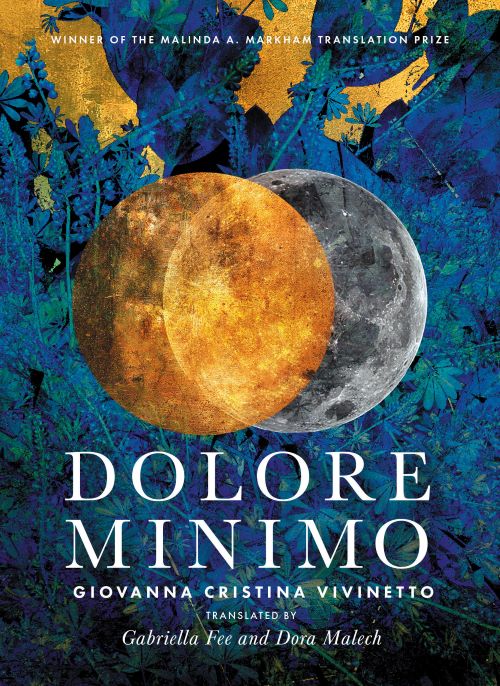The truth is names choose useven before they’re pronounced.On the walls, at the curbs,in the vases of carnations and hydrangeas,in the lines of water that streakthe windows each morning, inthe laced-up shoes, on the buzzersof doorbells, in the abandonedstations. On everything a namegathers. It shines from everything.And one who flees names knowsthat none escape being hailed,that names tie knotsof truth cinched tight,constricted syllables shapedtoo tight to talk. Shaped to hurt.The names that chose mefound no corners to illuminate.Their meanings recededas I dug into eachletter. I was looking for loopholes,for arcana to examineto make sense of myself.I renounced them and with themthe arrogance of definition.The foolishness of searchingwords for truth.The truth is realityslept right under my nose,buried in a mute heapof names. [La verità è che i nomi ci scelgono]La verità è che i nomi ci scelgonoprima ancora di pronunciarli.Sulle pareti, a ridosso delle strade,nei vasi di garofani e ortensie,sulle strisce d’acqua che riganole finestre al mattino, sullescarpe allacciate, sui pulsantidei campanelli, nelle stazioniin disuso. Su tutto si coagulaun nome. Tutto ne risplende.E chi fugge dai nomi sappiache non si sfugge alla nominazioneperché i nomi legano in nodidi verità strette da calzare,costringono in sillabe da pronunciarea detti stretti. Da far male.I nomi che mi hanno sceltanon trovarono angoli da rischiarare.Cessarono presto i significatimentre ero intenta a scavare in ognilettera. Speravo nelle eccezioni,in costrutti arcani da indagareper darmi un senso.Ci rinunciai e con loroall’arroganza della definizione.All’insensatezza di attenersialle parole per vedere la realtà.La verità è che la realtàdormiva a un palmo dal nasosepolta da un cumulo mutodi nomi.
[The truth is names choose us]
Feature Date
- April 6, 2023
Series
- Translation
Selected By
Share This Poem
Print This Poem
“[The truth is names choose us]” from DOLORE MINIMO: by Giovanna Cristina Vivinetto.
Published by Saturnalia Books on October 15, 2022.
English Copyright © 2022 by Gabriella Fee and Dora Malech.
All rights reserved.
Reproduced by Poetry Daily with permission.

Giovanna Cristina Vivinetto was born in Sicily in 1994. Interlinea Edizioni published her first book of poems, Dolore Minimo, in 2018. This debut is the first collection of Italian poetry on the subject of trans identity. The book has won several prizes, including the Viareggio Opera Prima in 2019. In February 2020, BUR Rizzoli published Vivinetto’s second book of poems, Dove Non Siamo Stati (Where We Have Not Been). Vivinetto lives in Rome, where she graduated from Sapienza University with a degree in modern philology.

Gabriella Fee’s poetry appears in Michigan Quarterly Review, Washington Square Review, The Common, Guesthouse, Sprung Formal, Levee Magazine, LETTERS, The American Literary Review (2019 Prize for Poetry), and elsewhere. They hold an MFA from the Writing Seminars at Johns Hopkins University, where they received the Elizabeth K. Moser Fund for Poetry Studies Fellowship and the Benjamin J. Sankey Fellowship in Poetry. They are a fellow with the Postdoctoral Society of Fellows in the Humanities at Johns Hopkins University.
Dora Malech’s most recent books of poetry are Flourish (Carnegie Mellon University Press, 2020) and Stet (Princeton University Press, 2018). Her honors include a Ruth Lilly Poetry Fellowship, an Amy Clampitt Residency Award, and a Civitella Ranieri Foundation Writer’ s Fellowship, and her poems have appeared in publications that include The New Yorker, Poetry, and The Best American Poetry. She is an associate professor in the Writing Seminars at Johns Hopkins University and the editor in chief of The Hopkins Review.
In Dolore Minimo, Giovanna Cristina Vivinetto attends to her own becoming in language both tender and fierce, painful and luminous. This collection, Vivinetto’s first, charts the course of her gender transition in poems that enact a mutually constitutive relationship between self and place, interrogating the foundations of physical, cultural, and emotional landscapes assumed or averred immutable. Her imagination is rooted in the Sicilian landscape of her native Siracusa, even as that ground shifts under foot in response to the poet’s own emotional and physical transformations. Vivinetto engages with classical mythology, Italian feminist theory, and received constructs of family, religion, and gender to explore the terrors and pleasures of a childhood that culminates in a second birth, in which she must be both mother and child. Fee and Malech’s collaborative translations reflect the polyvocal and processual qualities of Vivinetto’s poetry, using language that foregrounds an active liminality and expresses the multiplicities of the self in dynamic conversation over the course of the collection. In Dolore Minimo, the lyric “I” is a chorus, but an intimate one.
Poetry Daily Depends on You
With your support, we make reading the best contemporary poetry a treasured daily experience. Consider a contribution today.




